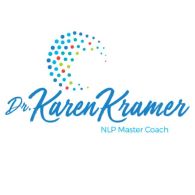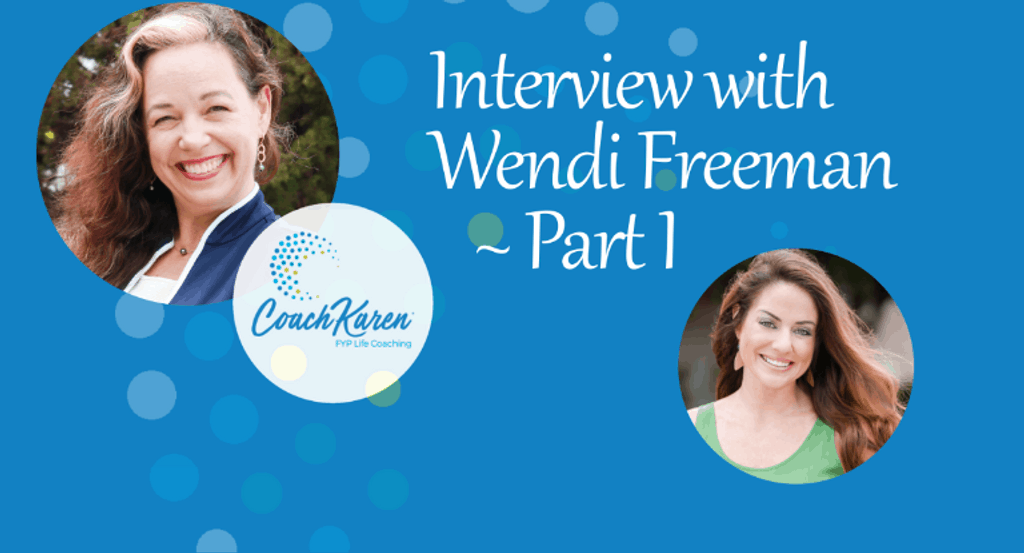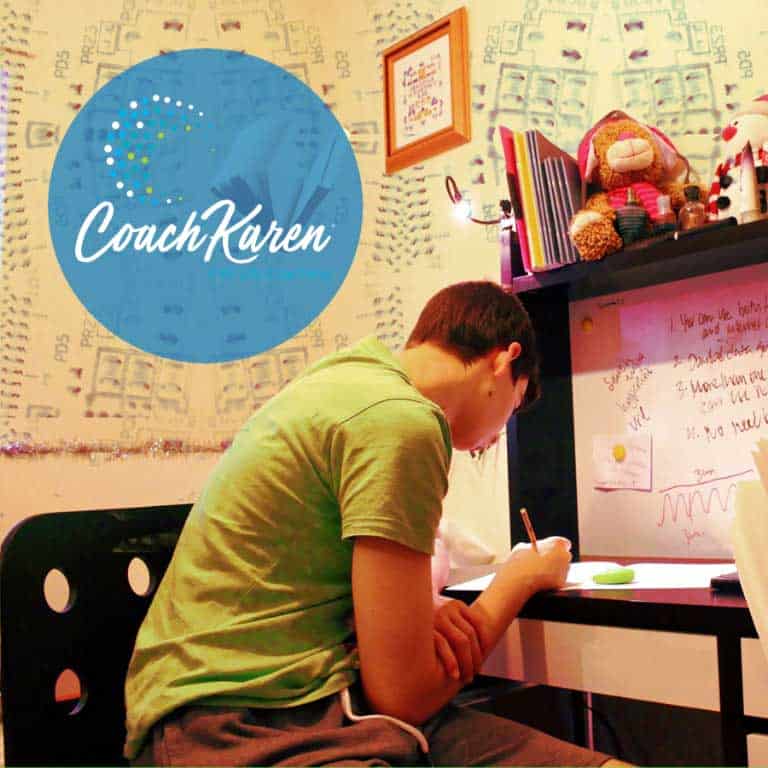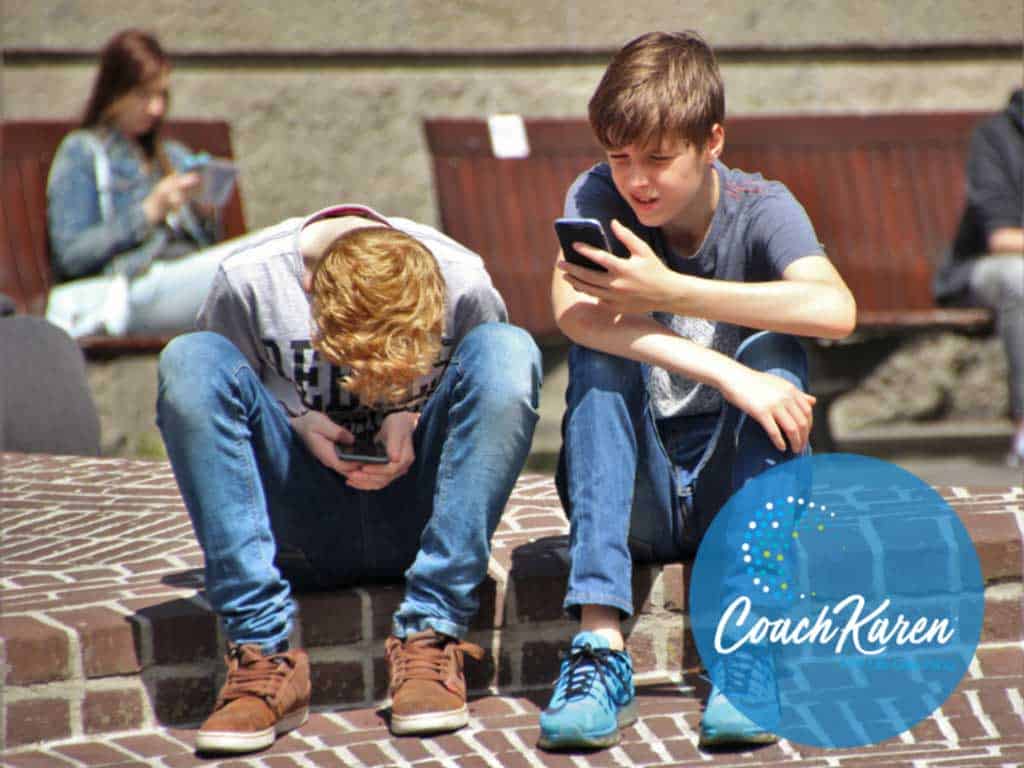Coaching and Personal Breakthroughs
This is the first part of an extensive interview I did with a current client of mine, Wendi Freeman. Wendi is a true inspiration to anyone who is looking to transition to entrepreneurship. She left a six-figure income after 11 years as a corporate marketing executive and event planner. Today, she is planning personal development events for thought leaders, visionaries and coaches that inspire positive change and encourage their attendees to live a life of purpose.
Through my coaching practice, I get a lot of questions about the differences between coaching and therapy. While there can be some overlap, coaching is action-oriented and self-driven by the client. I coach.
With my coaching, there are two modalities that I focus on. The first is traditional life coaching, working with clients to identify their challenges or desires and taking action to shape their lives. The second modality is what I call Personal Breakthrough Sessions.
Wendi and I have worked with both modalities in really getting her journey going. So, through our interview today, we will discuss how to utilize those techniques in reality, whether you’re becoming an entrepreneur or not.
Karen Kramer: Wendi, what was the turning point for you and making the decision from jumping from the corporate world to becoming an entrepreneur. I assume you didn’t just wake up one day and go, “I think I’ll become an entrepreneur.”
Wendi Freeman: No, definitely not. The thought had not even really crossed my mind. I realized that there was something missing in my life. You know I’ve had a great life. I did everything that you’re supposed to do: go to school. get a degree, good job, married, buy a house, the whole thing.
I followed all the rules, and I realized something was still missing. But I didn’t know what that was. So, I really started on a journey of personal development: reading books, going to webinars, buying courses.
Then a friend introduced me to the idea of live development events. That really was my turning point. Once I was able to surround myself with an environment of like-minded people and recognize the community within those people. Everything that they were doing in the life, that they eerre living, and the tools that they implemented…That’s the turning point. It was really that live event where I saw possibility. Whereas before, I just felt stuck. I didn’t know that there was anything out there.
KK: Yes, one thing I love about being around a community of like-minded individuals is you really start to see what the possibilities are. “Oh, I may have had this inkling, an idea about it. But oh my God! They’re doing it”
[Like-minded individuals] are in that growth mind too. I know for myself, we’re talking about 10 years ago, it was like, “Oh this is a possibility. It’s not just a Dream.”
WF: Right. Exactly. I love it.
KK: Now we’re working on your journey. You and I have known each other for about seven months. So, I got to know you as you were already on the path to making this decision, but there was a certain emotion that was coming up for you as you were on this journey. There was one that I helped to overcome. Do you want to talk about that?
WF: Fear. 100 percent fear. You know: the fear of change, the fear of leaving the safety and security of a paycheck. I’m a single mom so there was a lot of fear around that and just fear of the unknown once I realized that this was the path I wanted to take.
I’ve never owned a business. I don’t know business things. I just know what my specialty is and what my passion is. So being able to get to a point where I—-The fear doesn’t go away—but being at a point where I can leverage that fear and use it to move forward instead of holding me back.
KK: Yes and I recognize that was one of the things we got to the point where you’re like you just got to do something with this fear.
WF: Yes.
KK: When I was making the jump from the corporate world to entrepreneur, I had this at this image that came to mind of frog that had been on this very solid big lily pad and it was comfortable. For me, it was 16 ½ years in the corporate world. I was comfortable, and the whole idea about jumping from this very comfortable solid lily pad to something that was smaller, an idea that was out there….I didn’t know if it was stable.
I too was dealing with being a single mom, worried about finances. “What does all this mean? What am I thinking?” These were thoughts that went through my head as well. So, that fear is real. That’s out there.
To Wendi’s point, fear can also be a great motivator, because if it doesn’t kick you in the butt…there’s a quote. “If your goal doesn’t scare you, it’s not big enough.” [Ruth Soukup] So, it’s getting into really setting challenging, big, scary goals and the fear that comes along with it that can be a great motivator, not just something that may hold us back.
So Wendi, with that fear we actually did do a technique when I started to work with you. So, what was it that I did to help you?
WF: Karen used a technique called Timeline Therapy. I will let her explain the details around that. I think it took us maybe 30 to 45 minutes. Basically, she walked me through this activity where I was able to look over my life and recognize other situations where fear was the common factor. Being able to go back in life to where fear held me back or stopped me in my tracks or prevented me from doing something that I wanted to do. I didn’t get specific and tell Karen, “There was this time that this happened, and there was that time that this happened. “ It was more working through what I could learn from those situations.
It was really an activity that I realized those were things that kind of bubbled up every now and again. Even though I didn’t realize that they were, but it’s like a snowball effect. That fear was there, and I never really dealt with it.
So, the next time fear came that snowball was bigger and bigger. Then this one [leaving my job] being like one of the biggest scariest things I’ve ever done in my life. It just magnified the size of that fear, because all that other fear was still like bottled up. Going through and learning what I could learn from those fearful experiences how I could apply that in the future really helped me harness in and focus on the right things. It’s just those negative emotions.
KK: And even as you’re talking about it, they don’t completely go away. So, when fear comes up, does it have the same emotional charge it did a couple months ago?
WF: Initially, yes, but now as an entrepreneur, there’s something scary every day. I mean every single day there is something that is scary, but now I’m able to look back and recognize how in this situation I channeled them…I turn that fear into passion. I use that fear. It is the fire that keeps me going.
Now I have such a stronger confidence and belief in myself, knowing what I’m capable of. I’m able to take that fear that comes up and I remind myself where I was a couple months ago, what I’ve overcome and I use that.
Like I said, the fear doesn’t go away. It’s a healthy human emotion as long as it doesn’t stop you in your tracks. I think Richard Branson actually said something about fear that if it doesn’t stop you from doing the things that you’re meant to do, then it’s a good emotion.
KK: One of the techniques that Wendi is talking about Timeline Therapy. It’s a way to release negative emotions. Fear is one of the five major negative emotions that it focuses on.
Some of the things she’s talking about are that when you go back in this process and are able to take away the learnings from it, then it reduces and takes away the emotional charge. In other words, coming in here and recognizing fear is a part of our life, it doesn’t just suddenly desensitize you. All of a sudden fear or any other than the negative emotions just completely goes away and you’re a zombie and you never have any more sadness, fear, guilt, any of them.
We’re still human but we’re not emotionally charged by…we’re not like stricken like “Oh, my God. There’s fear. There’s sadness. There’s hurt. There’s anger.” All of those are part of human nature, but recognizing that we’re channeling it in a different way. We even heard Wendi talk about confidence.
WF: It was the confidence that gave me the courage.
KK: Yes, to make that leap for me, it was that literally jumping from one lilly pad to another. And for you it was like, “Holy Crap!”
WF: Yes. Oh, my God. Holy crap!
I felt like I was like standing on this cliff looking down. But I had never been so sure of anything like I knew this was the right thing for me to do. This was what I had been missing.
Yes, you know, but the courage to do that…Once it was done, it was just now I have more cards to use than I had when I was building that courage up.
KK: Building the win. It’s another thing about coaching, too. Building the wins even though they’re small wins. It’s challenging for some to go from the cushy job in the corporate world 14 ½ or 11 years and make that leap on your own.
So, part of it is building up small wins to get there, versus saying hey we you know how about you turn in your resignation tomorrow. There’s a plan that you had.
We’ve talked a bit about timeline therapy as a means of personal breakthroughs. But I’m only one of the coaches that have worked with you. Tell me about your other coach, how you’ve worked with him in regards to personal breakthrough sessions, and how are different. That’s important too.
WF: My other coach is Aaron Morrison with Wildfire dynamics. I know you’ve gone into Karen and all of her certifications and all the things in her background. Aaron is certified in many of the same ways that Karen is.
What I have experienced with both of them is that first of all you can never have too much support. There’s no such thing. The more support the more the better, right? Yeah, you can do it alone, but why would you? How much quicker can you succeed when you have resources and advocates that believe in you and helping you to achieve your dreams?
What I love about working with Karen and Aaron separately is just their styles. You know you have to have rapport there. If you’re not in rapport with your coach, there’s no purpose…there’s absolutely no purpose to it.
With Karen, I get that feminine energy, that compassion, the mom things that come in, her ability to relate. Like she said, there’s a lot of parallels in our backgrounds. We’ve really recognized that shared corporate career to entrepreneurship journey. Having that has really made a huge difference.
Then you add in a male coach, and you get that masculine energy. A little bit more of that tough love, a little bit more direct, more pointed. But for me specifically, I need both of those. I need the sweet and the salty. It’s not tough love. Sometimes you just need somebody to be real with you and not sugar coat it.
So, I get Karen, who sometimes – Don’t get me wrong. She can give it to you. She points that finger at me a lot. I’m used to that – But it’s the yin and the yang, the two combined together, and I have like the best coaching team. I’ll go head to head with anybody else who thinks they have better coaches and I do.
KK: I think that’s important, too. The value of recognizing that different coaches bring in different styles and techniques.
One thing I do when I have somebody call me for a free 20-minute phone consultation is look at their needs. Is this therapy or is this coaching? Is this person right for a personal breakthrough? That’s why we’re doing the call, too. Getting into more about talking about the differences between coaching and personal breakthrough. Yes, they can be combined but there are also two different techniques..
Also, I get people who call me, whether it’s parents adults, and really building the rapport and really finding out what they want. For me, as Wendi is described, I can be very pointed, and also I can be very sweet. So, it’s a matter of working with that client and recognizing that I may not be the best coach for that individual. I’m very upfront. If I don’t think I’m going to be the right coach for that person, then I will let them know, and I will also find other resources for them
I love graduating my clients. So, whether it’s that I’ve taken them to where they want to be right now in their life and another coach is going to take them further, or that I’ve taken them to where they want to be and me being straightforward is only getting them so far. If they could really use somebody who’s a harder hitter like Aaron Morrison is, then that’s a great transition.
I was speaking to somebody a month ago. He said, “I’ve been working with a coach for two years, and I and I’m not quite sure of changing. It’s kind of like breaking up with your coach.” I told him, “Congratulations, you’ve graduated.” That’s what I call it. I love graduating my clients. I don’t want them to hang around forever. If they’re hanging around forever, that means I’m not doing my job.
Let’s change direction a little bit. Wendi, tell us a little bit more about your business.
WF: My business is Be Bright Events. We alluded at the beginning where my story changed, my turning point. I was at a live personal development event.
My entire career had been in corporate marketing and event planning. I knew that something was missing from my life and that’s where I kind of realized how it was with that community was how I was going to make that change. I didn’t realize that moving into entrepreneurship was what that change was going to be.
That first event where I realized which community I wanted to be a part of. It was the second event where that light bulb clicked on. It was like, “I want to plan events just like this. I want to create that space for these thought leaders and personal development coaches and authors and people that have such an impactful message to share.”
They’re making such a difference in people’s lives that it’s helping all their clients and attendees live a life of purpose. So, it just switched on. I really just took exactly what I’ve been doing my entire life, but instead of doing it for the corporate world, now I’m doing it for people that are making a drastic impact in a way that everybody else lives their lives.
KK: Yes, it’s just been so fun seeing you over the last six months or so, watching you go through a lot of this transition from I want to make shift to –well, event planning was your background — to make that shift and even turning – Oh! You haven’t mentioned yet who turned into your first client.
WF: No? So when I did finally face my , I was in the Middle of planning a huge event for my corporate employer. With my impending resignation, there was a lot of guilt that went into leaving them in the middle of this huge event that I was heading up.
So, along with my resignation, I delivered a proposal for me to finish out planning their conference. With my resignation, not only did I gain the freedom of living my life and fulfilling my purpose, but I also was able to turn my [former] employer into my very first client.
KK: Yes, making that transition which is awesome. I actually wanted to talk more about that transition and personal breakthrough techniques, but I think this is a good time to talk more about coaching.
Coaching really helps with the transition you’re just talking about. How would you describe the differences between personal breakthrough and coaching and talk a bit about your coach?
WF: Okay. Where I have Karen and Aaron Karen and Aaron, they really help me to deal with a lot of my personal emotions: my fear, the guilt, the scarcity mentality. They help shift my mindset into a place of abundance versus scarcity.
As a whole, I’ve really gained the ability to shift my mindset. I learned to focus on the things that I want instead of the things that I don’t want. We all know there are things in life, we don’t have control over, but I learned that when I focus on those you go down into that hole. They gave me the tools to really shift my mindset and to get to this place where I was ready to make the change.
Like I said, not having a strong business background on business and corporate filings and taxes. I mean, I don’t know that stuff. I realized that there is no better investment in yourself or there’s no better investment than the one you make in yourself. So, I took out a loan despite all of my limiting money beliefs. I recognize the importance of it, and I hired a coach.
He’s more of a business coach. He still a lot of the mindset has a similar background as Karen and Aaron do. He’s still in that space of abundance versus scarcity and you know mindset and all of that. But also, he coaches more to strategic direction, long-term vision versus focusing on me and the now and what I need now. His name is Casey Thornton and he is with Life on Fire. You can add him to my team of best coaches.
I have weekly calls with Casey and the thing that I love about that is that Casey holds me accountable. I know that every single time I have a call with Casey that he’s going to say to me, “What did you do this past week? What are we celebrating?” We start every call that way. There’s a little things you don’t even realize what you’re celebrating or should be celebrating.
Then we move into how he can help me look at long-term strategy, vision. Where do I want to take my business? What are the little steps to get there? Starting really small to get to my goals. Goals are big goals, are huge, and goals are constantly shifting and changing. They should never stay the same. Once you hit a goal, there’s more. So, it’s more about those steppingstones, how to achieve those, and what do I need to do and what kind of person do I need to be to be able to achieve those goals.
KK: We’re going to go back to talking about some personal breakthrough, but I wanted to bring that coaching element forward too.
Wendi, we heard from you that there was a lot of personal breakthrough type work that you went through before you engaged in coaching. Again, talking about the differences, coaching just in general being more week by week, discussing ongoing strategy, and focusing on the future. Personal breakthrough is recognizing too, that if there is something that’s holding you back. Sometimes it’s emotion. You were talking about Fear. It’s clearing out some of that.
I liken it to an analogy of a having a bowl. It might even be your head, but it’s a bowl that just has a lot of stuff in it. It could be your limiting decisions or things that are holding you back are sitting in this Bowl. When you want to start something new, you have to clean up the bowl before you pile on new things. So, the idea is to clear out the bulk of those things that don’t serve you, and starting to insert things that do serve you in that Bowl. And Wendi started from doing some of the personal breakthrough work before starting her coaching.
And those breakthroughs are so important. A client that I had this year, we actually started with coaching because he came to me and he said, “I want to get back into the career and into a work environment.” He had been out for two and a half years. To that point it had been two years since his mom had passed away. As we started focusing on strategy and focusing forward, there were some things that were holding him back.
So, after about three months we realized he was taking two steps forward, one step back. Two steps forward, one step back. He was inching forward but he wasn’t making real progress. We decided to do a full personal breakthrough session with him. When I started utilizing these techniques, his steps became leaps and bounds. Within a month, he made so much more progress than he did in the three months prior to that.
We need to recognize that you can combine both the personal breakthrough and the coaching. You can combine both. Wendi, you combined both which is why we’re talking about it today. You’ve had that experience.
We talked a bit about timeline therapy. I do want to mention what you brought up previously. We talked about fear. I mentioned that with timeline therapy there are five major negative emotions. There are two others, shame and anxiety, that can be associated with that fear.
Really it starts when I’m doing a personal history and intake session with a client. We’re really trying to get to what’s the root of it. So, for my client who came to me about career, when we really dove down into a personal breakthrough session, he realized it was around people pleasing. He came to me talking about career. But once we were able to clear out this whole need for people pleasing, we found that that was something that impacted him not only on his career but with unresolved issues with the passing of his mom, his relationships with his siblings, and even getting back into the dating world again. It covered so many things. Again, when we start clearing out that bowl, we may be focusing on one area that, in turn, clears out others.
The American Medical Association says there is between 60 to 80 hours with a therapist to relieve one negative emotion. You spoke about fear. Can you imagine going back 60 to hours and the cost associated with —
WF: We did in 45 minutes.
KK: That’s it! You can do it in 45 minutes or even less. Think about that. The time it takes –
WF: Can I butt in here for a second, please?
I am one of I’m one of those people who didn’t know about coaches. I didn’t know it was a thing. So, I’ve been in therapy my whole life. You know different strokes for different folks? This is not to put down therapists by any means. I have received a lot of value from my therapists throughout the years, but what I’ve received now, being able to be on both sides of it is that working through my fear in a 45 minutes versus months and weeks and thousands… I mean, if I add up all the money that I have spent over all of the years of therapy and add to that not just the money but the time…It’s true. Time is money, especially now as an entrepreneur. I don’t have time to go sit in somebody’s office for an hour every week: drive there, having to relive every single instance, the details to share with your therapist and what it was. “So yes, this happened. Here’s the play by play of what happened.” So then they can help you break that down and process it.
Here [in coaching], it’s more about the context and not the content. I don’t need to relive that and put at the forefront the things I don’t want. [In therapy, I’m] focusing on the negative instead of the positive. The positive being, “What can I learn from this negative experience?”
With coaching, we’re working through my limiting money beliefs. I’m clearly doing well since I borrowed money to hire coaches. But when I sit there and really look at it and put it on paper: hours, time, money. How could I not spend that money to move my life here. Yeah, I might be here in the same place, but it could be five years from now, it could be 10 years from now or with the wrong people. It might never happen.
That acknowledgement, that the investment in myself has not only has gotten me where I am, it has gotten me here quicker, and it also has gotten me here with a lot less a lot less pain and a lot fewer tears.
KK:. Oh yeah. I’ve seen that too. I cried. I’m very emotional. Yes good.
WF: You’ve got to release the emotions. You do.
KK: We’re so much alike in that end of it. I love it. And what a great way to talk about the differences between therapy and personal breakthroughs. I’ve had people call me and say, “Well, isn’t that therapy?” Yes, personal breakthrough sessions in many ways can feel like therapy, but to the point that Wendi just made, you don’t have to relive it again. That’s the big difference between therapy and a personal breakthrough session. You don’t have to relive the trauma and the issues from the past. It’s really releasing it.
WF: Well, when you think about that –and I never put this together until now. This is going to be the first time you’ve actually heard me say this. Okay? It’s original content now. — You know what I mean by not giving you all of the details of the different incidents. You’re able to take your training and apply it based on training. It’s not just, “Well, I had a client that this happened and this this seemed to work.“ You’re taking the principles of what you actually learned and applying it to the situation, not the incident.
I feel like it’s natural to compare. Will this work for this person and this work for this person. But no two people are alike. No situations, even if they’re the exact same root issue, are the same. But for Karen to be able to look and say, “Okay, this fear blah, blah, blah.” That’s it. That’s all she needed to know. If I choose to share, and in some cases I do because I’m a talker, she’s not comparing me to other people. She’s saying fear. Okay, this is what I’ve learned about how to best help, how to best help you work through your fear versus applying things that may have or may have not worked for other people.
KK: As a coach, I’m going to focus on where that person is at that point in time. Like you said, each person is unique. If I’m a therapist, I need to know what are you coming in for, what the trauma is. For example, do you suffer from PTSD over a previous issue that’s going on .
With personal breakthrough sessions, I don’t need to know what the issue is. In fact, to your point, during the process I didn’t know all the things that you were going through. The process of leading you through what those events were in your life and what you can learn coming out of that. You’re a talker and we talk about the issues, but more importantly we concentrate on what you want afterwards.
END PART I
Part II will be released next week as we further explore personal breakthroughs and coaching. Even though the conversation isn’t through, I want to give a big ‘Thank You’ to Wendi Freeman for doing this interview with me. She’s been a pleasure to work with and is such a great example of the various techniques I employ with my clients to help them live their lives as fully as possible.
Some quick information about Wendi:
If you want to find out more about her event planning, go to her Facebook page @BeBrightEvents. She specializes in events for life coaches, authors, visionaries, and thought leaders. She is passionate about helping those who it is their passion and their purpose to impact others by encouraging them to live the life of their dreams.
DISCLAIMER: Portions of this interview were edited for clarity and conciseness.





